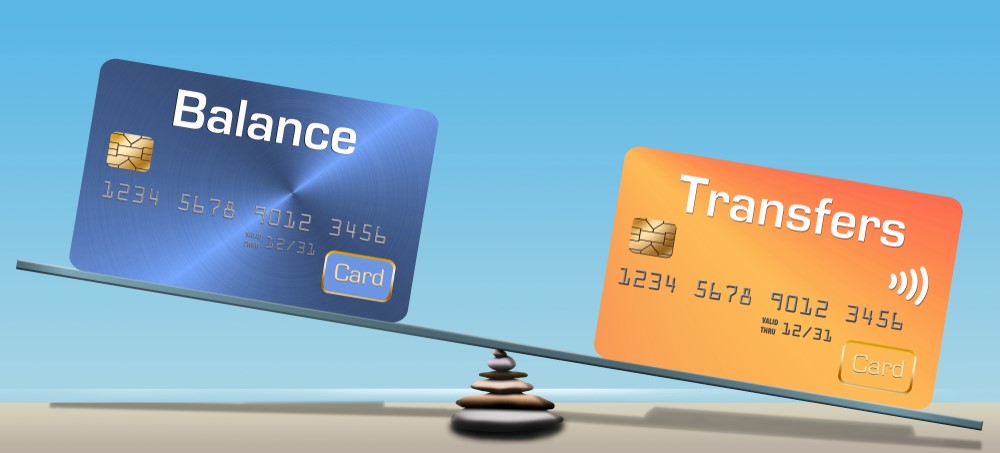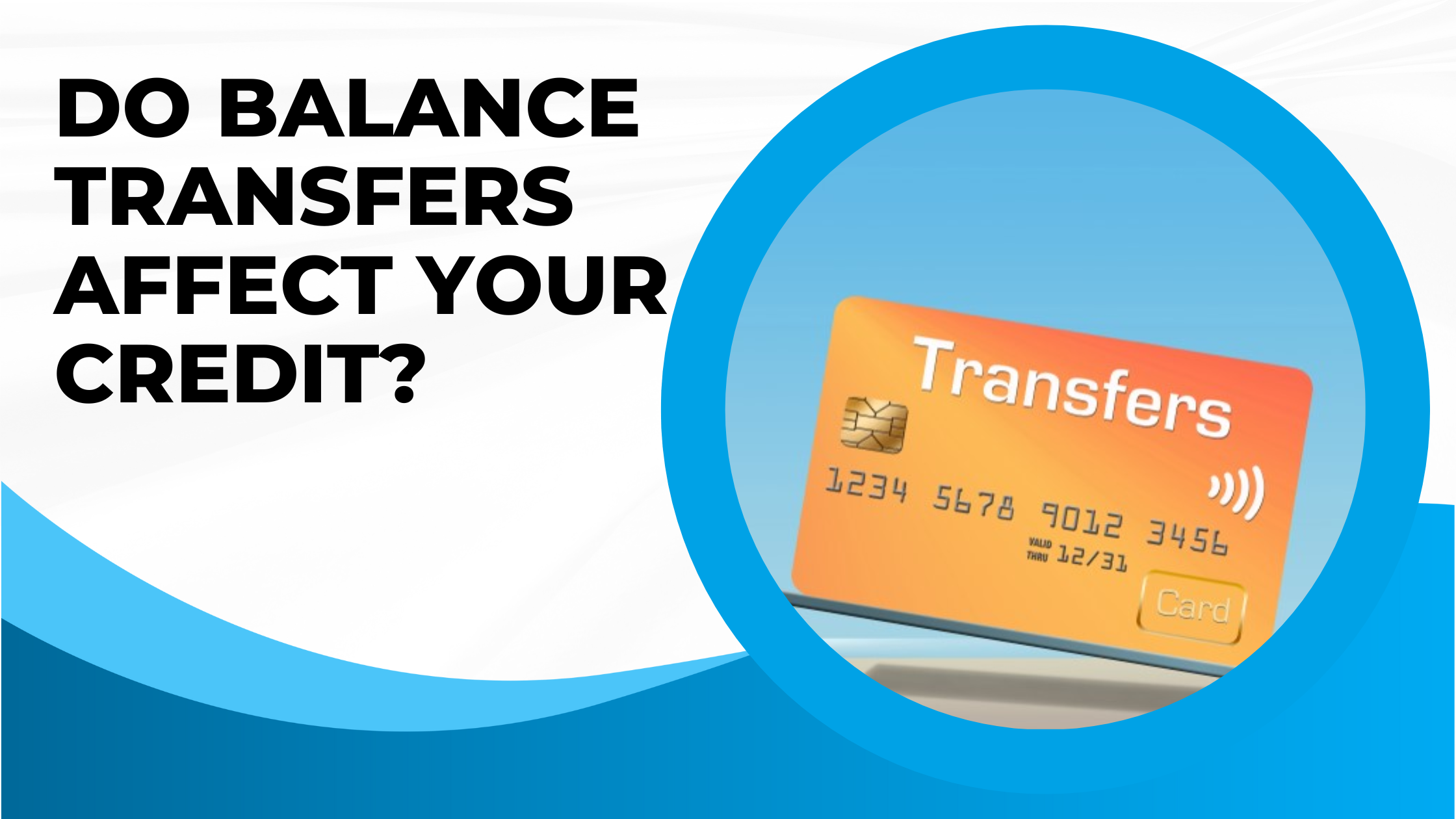Table of Contents
ToggleReducing Rates of Interest on Debts
Are you considering moving high-interest debt from one credit card to another credit card that has a lower interest rate? Or even better, a zero percent interest period by performing a balance transfer? Doing a balance transfer can save you thousands of dollars while also making it much easier to pay down the credit card balance owed.Additional Considerations When Making A Balance Transfer
Balance transfers won’t directly hurt your credit score, but applying for new credit can affect your credit score in both good and bad ways. You need to keep one thing in mind before doing a balance transfer. Doing a balance transfer won’t fix any bad financial habits that led you to a large amount of debt in the first place. So, before applying for a balance transfer, you should make sure that you have a solid plan to pay off your credit card debt to prevent yourself from putting yourself into the same position later on.Does Balance Transfer Affect Credit Score?
 As we mentioned above, a balance transfer can affect your credit score in bad and good ways.
This section will look closely at the good and bad aspects of balance transfers regarding credit ratings.
As we mentioned above, a balance transfer can affect your credit score in bad and good ways.
This section will look closely at the good and bad aspects of balance transfers regarding credit ratings.
How Balance Transfers Hurt Your Credit Score
Submitting a new credit card application for a balance transfer will put a hard inquiry on your credit report. Initially, a hard inquiry will drop your credit score by a few points, and the inquiry will stay on your credit history for two years. Opening a new line of credit also impacts the length of your history with credit. A new line of credit reduces the average age of credit, which will also take your credit rating down a few points. If you have multiple credit cards, the impact of opening a new line of credit will have a larger effect on your credit score. Utilizing a balance transfer to help you pay your debt and using your credit responsibly after a balance transfer should help mitigate or cancel out the short-term dings.How Balance Transfers Improve Your Credit Score
Simply performing a balance transfer won’t affect your credit score much, if at all. If you want to change your credit score by doing a balance transfer, the key is to use it to lower your debt – both in the percentage of available credit and dollar amounts. Getting rid of debt helps send the right kind of signals which will improve your credit score. Every dollar you aren’t paying in interest is money you can use instead to pay off debt. This helps you reduce your debt faster, which is good for your overall credit. The amount you owe on your credit cards accounts for around 30 percent of your FICO score. The dollar amount of the debt you carry is the key factor here. Another thing to consider is your credit utilization ratio, which is the percentage of the available credit you’re currently using. It’s recommended that you try to keep your credit utilization ratio under 30 percent all the time – across all the cards you have and on a per-card basis. By adding a new credit card, you’re reducing your credit utilization ratio. Let’s give an example to help you understand this better. Say that an individual has two lines of credit in the form of credit cards:- Card 1: $6,000 limit, with a $3,000 balance
- Card 2: $4,000 limit, with a $1,500 balance

Are Balance Transfers a Good Idea?
Doing a balance transfer should ultimately save you money. If doing one doesn’t save you money, then it’s generally not wise to do one. For example, say that you have a balance of $11,000 on a credit card with an interest rate of 16 percent, and you want to pay it off over the next 12 months. If you leave the debt on that one card while you’re paying it off, you can expect to pay about $975 in interest. If you move that debt to a card with a 0 percent interest rate for 12 months, you will pay nothing in interest. You do have to remember that most credit cards will charge you a fee for doing a balance transfer, typically between three to five percent. In the example above, you would end up paying a balance transfer fee of $330, so you would be saving $645. Transferring a balance still means paying off the existing debt with the new credit card. However, if you move your debt to a credit card with a much lower interest rate, you’ll spend less money maintaining the debt in the future. This means that you’ll be able to devote more of your money to pay down the principle of the debt you have instead of the interest. When you’re thinking, “Does balance transfer affect credit score?”, it’s important to know what they don’t do:- It doesn’t reduce the total amount that you owe. For example, if you owe $6,000 on a credit card and transfer that balance to a new credit card, you’ll still have $6,000 to pay off. It’s just on a different card. You’re still responsible for any interest accumulated on the card before you did a balance transfer. It becomes part of what you pay off with the new credit card.
- It doesn’t change the status of anything with the old account. The credit card account you transferred the debt from will stay on your credit report even if you end up closing the account. Accounts closed with good standing will stay on Aour credit report for ten years. accounts closed with bad remarks will stay on the report for seven years. If you missed any payments on the old credit card account, the missed payments would still show up and play a part in your credit score.
Conclusion
 Balance transfers can be good ways to help you pay down debt caused by credit cards. But does balance transfer affect credit score?
Several factors play a role in deciding if a balance transfer will hurt or help your credit score.
Individuals with a great score (740 or higher) might qualify for the best balance transfer cards available.
People with much lower credit scores may still qualify for some good balance transfer cards – but might not be given initial credit lines sufficient for transferring large balances.
Because of this, people with lower scores might want to ask their existing credit card issuers to consider lowering their interest rate on the balances they cannot transfer.
Before doing a balance transfer, there are a few things that you should do:
Balance transfers can be good ways to help you pay down debt caused by credit cards. But does balance transfer affect credit score?
Several factors play a role in deciding if a balance transfer will hurt or help your credit score.
Individuals with a great score (740 or higher) might qualify for the best balance transfer cards available.
People with much lower credit scores may still qualify for some good balance transfer cards – but might not be given initial credit lines sufficient for transferring large balances.
Because of this, people with lower scores might want to ask their existing credit card issuers to consider lowering their interest rate on the balances they cannot transfer.
Before doing a balance transfer, there are a few things that you should do:
- Perform research to help you determine if a balance transfer credit card is a good choice for you.
- If you decide that a balance transfer is a sensible idea, you should shop around the cards available to you to find the one that makes the most sense for your needs.
- If you get approved for the card, begin the balance transfer process.
- Pay down the debt you have aggressively on your new balance transfer card to avoid any of the “gotchas” that these cards can have. Try to avoid adding more debt to the card.
- Try to focus on building your credit with your new credit card using good credit habits. For example, try making more than the minimum payment on the card and always pay your credit card bill on time.

